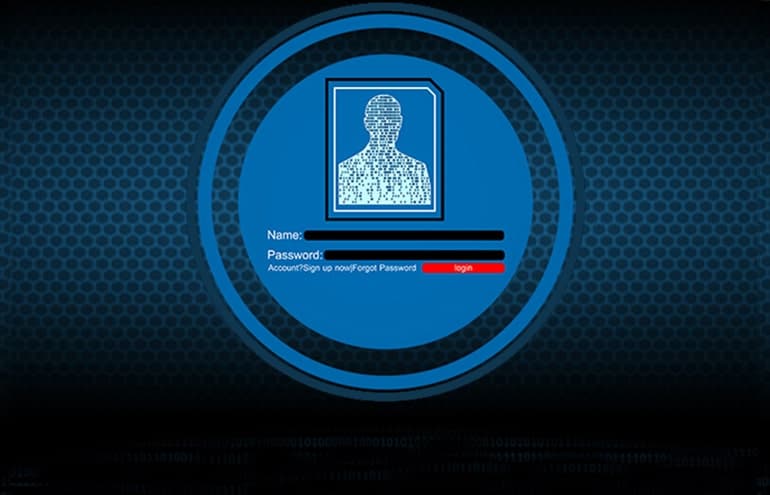Benefits of a cloud-based law firm client portal include improved 1) security, 2) communications, 3) payments and 4) marketability.

Table of contents
Q: About seven years ago, our small firm of 12 lawyers implemented practice management software to improve our office processes and client service. It’s been a learning curve, but we are undoubtedly a superior firm because of it. Now, especially after reimagining how we can and should be engaging with clients in a post-COVID world, we’re considering adding a law firm client portal to our firm’s tools.
Can you help me convince my law partners that client portals are the “next big thing”?
A: Lawyers are trained to first look to the rules. It’s the “R” in IRAC, as we set out to properly examine an issue and apply the law to facts. The authority on what lawyers must do are the Rules of Professional Conduct in the jurisdictions we practice, led by Rule 1.1, Competence.
How we define competency in the legal profession and the means of delivering value to our clients have pivoted. Waiting for the end of the COVID-19 pandemic isn’t like we’ve been peering out the window, waiting for the rain to stop. The road has already been paved. It’s a new trajectory. Forever.
Technology has never advanced as fast as it’s advancing today, and it will never advance this slowly again.
Along this new path, a tool modern lawyers can use to better serve their clients and their ethical obligations is the secure client portal. Law firm client portals are a convenient, centralized hub used to transmit and store client messages, documents, invoices, feedback and much more. The future is now.
Let’s look back, so we can best look forward.
The Old Way: Emailing
Over 20 years ago, as we prepared to thrust the legal profession into the 21st century, the ABA released Formal Opinion 99-413 (1999) on the protections entrusted to email communications involving clients’ information.
The opinion concluded that this still-evolving tool could be used by lawyers even though it posed the risk of illegal interception, not different from a wiretapped phone or an intercepted letter. And so, the emailing ways of our profession, and society, marched on and quickly became the norm for communicating and sharing documents.
More than a decade later, the ABA Ethics 20/20 Commission’s recommendation led to the “technology competency” requirement under Comment 8 of Rule 1.1, stating that “a lawyer should keep abreast of changes in the law and its practice, including the benefits and risks of technology …” (adopted by 39 states as of this post).
The ABA also added a new subpart (c) to Rule 1.6 (Confidentiality of Information) that states, “A lawyer shall make reasonable efforts to prevent the inadvertent or unauthorized disclosure of, or unauthorized access to, information relating to the representation of a client.”
In 2017, the ABA reopened the 1999 email opinion to give further guidance while not (yet?) eliminating the use of unencrypted email with clients. Opinion 477R states:
… In the technological landscape of Opinion 99-413, and due to the reasonable expectations of privacy available to email communications at the time, unencrypted email posed no greater risk of interception or disclosure than other non-electronic forms of communication. This basic premise remains true today for routine communication with clients, presuming the lawyer has implemented basic and reasonably available methods of common electronic security measures. Thus, the use of unencrypted routine email generally remains an acceptable method of lawyer-client communication.
However, cyber-threats and the proliferation of electronic communications devices have changed the landscape, and it is not always reasonable to rely on unencrypted email. For example, electronic communication through certain mobile applications or on message boards or via unsecured networks may lack the basic expectation of privacy afforded to email communications. Therefore, lawyers must, on a case-by-case basis, constantly analyze how they communicate electronically about client matters, applying the Comment 18 factors to determine what effort is reasonable.
Some steps the opinion provides lawyers to better guard against unauthorized disclosures include:
- Understand the nature of the threat.
- Understand how client confidential information is transmitted and where it is stored.
- Understand and use reasonable electronic security measures.
- Determine how electronic communications about client matters should be protected.
- Label client confidential information.
- Train lawyers and non-lawyer assistants in technology and information security.
- Conduct due diligence on vendors providing communication technology (e.g., cloud-based vendors).
Fast-forward to today, and we still find law firms are the least guarded path to the most sensitive data. The juggernaut that is technology speeds forward with cloud technology, SaaS model software, advanced mobile devices and so on, while cybersecurity threats grow each year.
The reasonableness of the extent and the methods of how to protect information has shifted, along with updates to the ethics rules imposed on lawyers. A new way has arrived.
The New Way: Law Firm Client Portals
Hopefully, by now, you’re using a practice management solution to operate your entire client journey, from intake to billing, including storage of all client communication and documents. The addition of client portals creates another pathway to the client outside of your organization, opening up various solutions to better deliver your services.
Suppose your client wants to get an update of their pending litigation or a copy of the latest Amended Order from the judge in their case. Instead of placing a call to your office or firing off an email, the client can simply and securely log in to their client portal and find the information on their own. This self-service option makes the client happier and creates greater efficiencies for you and your office.
Adding a cloud-based client portal option to your firm’s suite of practice tools gives you greater flexibility when working from home, on the road, or even at the courthouse or handling a transaction. You can engage with your client in an online environment with electronic security measures that meet industry standards, well beyond an unsecured email or text message. Best of all, you can enjoy the benefits of a client portal without needing additional technology skills.
The benefits of law firm client portals can include:
Improved Security
The two-way sharing of information – documents, bank statements, pleadings, contract drafts and the like – must be protected, and our ethics rules require “reasonable efforts to prevent the inadvertent or unauthorized disclosure of, or unauthorized access to, information relating to the representation of a client” (Rule 1.6(c)). Using a secure client portal eliminates the concern of sending unsecured emails to your clients and third parties such as co-counsel.
When further considering the factors in determining the reasonableness of the lawyer’s efforts in safeguarding confidential information, such as the cost and difficulty of implementing a client portal or the extent to which a client portal adversely affects the lawyer’s ability to represent clients (actually, it should be doing the opposite), there is no question that competent representation demands it. See Comment 18 to Rule 1.6.
Improved Communication
Lawyers have an ethical obligation to “explain a matter to the extent reasonably necessary to permit the client to make informed decisions regarding the representation” (Rule 1.4(b)). Promptness and completeness of communication with clients are not only good customer service qualities, but they are also crucial to proper ethical representation.
Client portals can track communication with your client, so you can quickly address their questions and concerns while keeping them informed about the status of their matter. Moreover, need a client to sign a document or obtain discovery materials by a certain deadline? Use the portal to assign and track tasks, build timelines, and memorialize the legal services you’ve provided. Other added benefits include no more spam emails or file size limits.
At the end of representation, use the portal to seek feedback and reviews. Measure your KPIs to improve your effectiveness and efficiencies in hopes of keeping that client for other services and making a strong impression for the next client.
Improved Payments
Lawyers using online legal billing options get paid more and faster. According to the 2019 Clio Legal Trends Report, 57% of electronic payments get paid within the same day they are billed, and 85% get paid within a week.
Whether it’s a one-time invoice or refueling a retainer, client payment tracking on a client portal offers convenience and transparency to your service. In fact, you might find that the portal implementation costs are more than covered by the increased account receivables realized alone.
Improved Marketability
Stop and picture a client login button on your webpage. Even before the client crosses your virtual doorstep, they should have a sense that you are tech-savvy, interested in delivering a client-centered experience, value their confidentiality, and want to maintain a modern approach to serving their legal needs.
A client portal with your branding and attention to detail will set you apart from your competition. This is especially so for the millennial legal consumers soon representing the largest consumer base.
The level of technology competency required of lawyers is constantly coming under scrutiny. But by properly securing the client experience, we can prevent law firms from being the least guarded path to the most sensitive information. Law firm client portals shouldn’t be tools of convenience but rather tools of necessity.
For lawyers, that necessity is embedded in our ethics rules.
About the Illinois Supreme Court Commission on Professionalism
The Commission on Professionalism was established by the Illinois Supreme Court in September 2005 to foster increased civility, professionalism and inclusiveness among lawyers and judges in the state of Illinois. By advancing the highest standards of conduct among lawyers, we work to better serve clients and society alike. These duties we uphold are defined under Supreme Court Rule 799(c). For more information, visit 2Civility.org.
Illustration ©iStockPhoto.com
More Good Ideas From Attorney at Work
Subscribe to the Daily Dispatch and Weekly Wrap (it’s free) and follow us on Twitter @attnyatwork.
You Might Also Like …
















